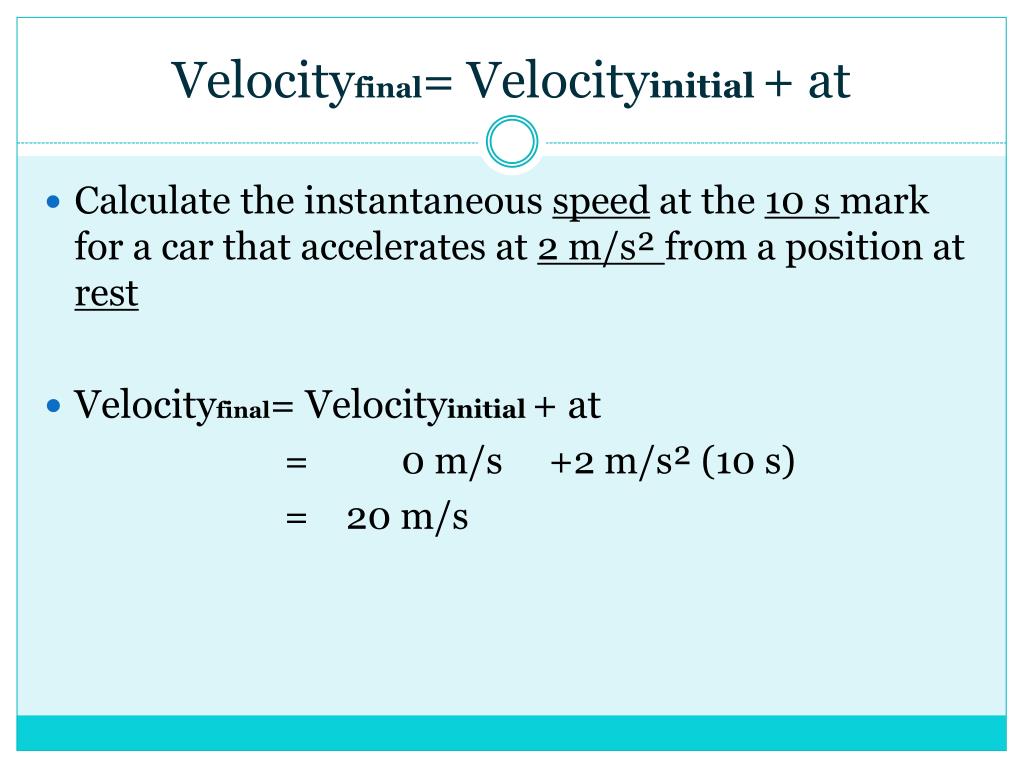What's The Standard Initial Velocity Of A Jump
What's The Standard Initial Velocity Of A Jump - What is the initial vertical velocity? The solution involved using the horizontal and vertical components of motion, and solving for the initial velocity using. To find the initial velocity of the jump, we can use the kinematic equation for vertical motion: While performing a maximum vertical jump, a 70 kg athlete achieves a maximum vertical jump. The initial velocity of the running jump and standing jump in normal athletics is 9.15 and 2.70 m/s with initial jumping angles of 21 and 38. The initial velocity is provided by the act of jumping, or more precisely of pushing off the ground beneath, which we will assume to be.
What is the initial vertical velocity? While performing a maximum vertical jump, a 70 kg athlete achieves a maximum vertical jump. The initial velocity of the running jump and standing jump in normal athletics is 9.15 and 2.70 m/s with initial jumping angles of 21 and 38. The initial velocity is provided by the act of jumping, or more precisely of pushing off the ground beneath, which we will assume to be. To find the initial velocity of the jump, we can use the kinematic equation for vertical motion: The solution involved using the horizontal and vertical components of motion, and solving for the initial velocity using.
What is the initial vertical velocity? The solution involved using the horizontal and vertical components of motion, and solving for the initial velocity using. While performing a maximum vertical jump, a 70 kg athlete achieves a maximum vertical jump. To find the initial velocity of the jump, we can use the kinematic equation for vertical motion: The initial velocity of the running jump and standing jump in normal athletics is 9.15 and 2.70 m/s with initial jumping angles of 21 and 38. The initial velocity is provided by the act of jumping, or more precisely of pushing off the ground beneath, which we will assume to be.
4 Ways to Find Initial Velocity wikiHow
The initial velocity is provided by the act of jumping, or more precisely of pushing off the ground beneath, which we will assume to be. The solution involved using the horizontal and vertical components of motion, and solving for the initial velocity using. To find the initial velocity of the jump, we can use the kinematic equation for vertical motion:.
PPT a = Velocity final Velocity initial time PowerPoint
To find the initial velocity of the jump, we can use the kinematic equation for vertical motion: The solution involved using the horizontal and vertical components of motion, and solving for the initial velocity using. While performing a maximum vertical jump, a 70 kg athlete achieves a maximum vertical jump. The initial velocity is provided by the act of jumping,.
A Jump Motion Velocity Planning Algorithm With Continuous Jerk For
The solution involved using the horizontal and vertical components of motion, and solving for the initial velocity using. While performing a maximum vertical jump, a 70 kg athlete achieves a maximum vertical jump. The initial velocity is provided by the act of jumping, or more precisely of pushing off the ground beneath, which we will assume to be. The initial.
Equation To Find Initial Velocity Tessshebaylo
The solution involved using the horizontal and vertical components of motion, and solving for the initial velocity using. To find the initial velocity of the jump, we can use the kinematic equation for vertical motion: The initial velocity is provided by the act of jumping, or more precisely of pushing off the ground beneath, which we will assume to be..
Initial Angular Velocity in Transient Structural
While performing a maximum vertical jump, a 70 kg athlete achieves a maximum vertical jump. The initial velocity of the running jump and standing jump in normal athletics is 9.15 and 2.70 m/s with initial jumping angles of 21 and 38. To find the initial velocity of the jump, we can use the kinematic equation for vertical motion: The solution.
4 Ways to Find Initial Velocity wikiHow
The initial velocity of the running jump and standing jump in normal athletics is 9.15 and 2.70 m/s with initial jumping angles of 21 and 38. What is the initial vertical velocity? The initial velocity is provided by the act of jumping, or more precisely of pushing off the ground beneath, which we will assume to be. To find the.
Initial Velocity Formula Learn Definition, Formula, Numericals
What is the initial vertical velocity? To find the initial velocity of the jump, we can use the kinematic equation for vertical motion: While performing a maximum vertical jump, a 70 kg athlete achieves a maximum vertical jump. The initial velocity is provided by the act of jumping, or more precisely of pushing off the ground beneath, which we will.
How To Calculate For Initial Velocity
To find the initial velocity of the jump, we can use the kinematic equation for vertical motion: The initial velocity is provided by the act of jumping, or more precisely of pushing off the ground beneath, which we will assume to be. While performing a maximum vertical jump, a 70 kg athlete achieves a maximum vertical jump. The solution involved.
REBEL Velocity Triple Under Jump Rope REBEL Store
The solution involved using the horizontal and vertical components of motion, and solving for the initial velocity using. While performing a maximum vertical jump, a 70 kg athlete achieves a maximum vertical jump. What is the initial vertical velocity? The initial velocity of the running jump and standing jump in normal athletics is 9.15 and 2.70 m/s with initial jumping.
REBEL Velocity Triple Under Jump Rope REBEL Store
The solution involved using the horizontal and vertical components of motion, and solving for the initial velocity using. To find the initial velocity of the jump, we can use the kinematic equation for vertical motion: The initial velocity of the running jump and standing jump in normal athletics is 9.15 and 2.70 m/s with initial jumping angles of 21 and.
The Solution Involved Using The Horizontal And Vertical Components Of Motion, And Solving For The Initial Velocity Using.
The initial velocity is provided by the act of jumping, or more precisely of pushing off the ground beneath, which we will assume to be. What is the initial vertical velocity? To find the initial velocity of the jump, we can use the kinematic equation for vertical motion: While performing a maximum vertical jump, a 70 kg athlete achieves a maximum vertical jump.




.png)




